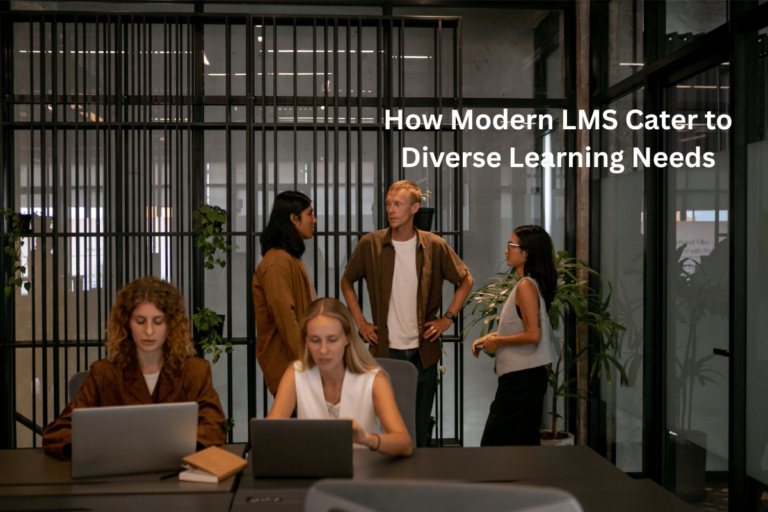Maximizing Your Learning: Top Study Techniques for Online Courses
As the saying goes, 'knowledge is power,' and in the realm of online learning, this holds true more than ever.
Navigating the world of online courses can be both challenging and rewarding, but the key to success lies in mastering the art of effective study techniques. In the digital landscape, where distractions abound and self-discipline is paramount, finding the right methods to maximize your learning potential is crucial.
Whether you're a seasoned online learner or just beginning your journey, understanding and implementing top study techniques can make all the difference in your educational experience.
Key Takeaways
- Prioritize tasks and create schedules to manage time effectively
- Utilize active learning strategies such as summarizing, questioning, and practicing
- Enhance learning experience with multimedia resources and online research
- Foster collaborative learning and seek support from instructors, tutors, and peers
Time Management
To effectively manage your time while taking online courses, prioritize tasks and create a schedule that allows for dedicated study periods.
Prioritizing tasks is essential for staying on top of your coursework. Start by identifying the most important assignments or deadlines and allocate your time accordingly.
Creating schedules will help you structure your study time and maintain a sense of routine. Consider using digital tools or apps to map out your daily, weekly, and monthly study plans. By breaking down your coursework into manageable chunks, you can prevent feeling overwhelmed and ensure that you cover all the necessary material.
Additionally, scheduling specific study periods can help you establish a productive rhythm and minimize distractions. Find a time of day when you're most alert and focused, and designate that as your dedicated study time. By adhering to a consistent schedule, you can train your mind to be prepared and engaged during these periods.
Prioritizing tasks and creating schedules will empower you to make the most of your online learning experience.
Active Reading
As you manage your time effectively while taking online courses, actively reading course materials can significantly enhance your learning experience. Active reading involves more than just scanning through the text; it requires critical analysis and engagement with the content. Here are some effective strategies to help you achieve a comprehensive understanding through active reading:
- Annotating: Marking up the text with notes, questions, and key points can aid in better comprehension and retention.
- Summarizing: Condensing each section into a brief summary can help reinforce your understanding of the material.
- Asking Questions: Formulating questions about the material and seeking answers can deepen your understanding and critical thinking skills.
- Engaging in Discussions: Actively participating in course discussions or study groups can help you gain new perspectives and insights.
- Relating to Personal Experience: Connecting the material to your own experiences or real-life situations can make the content more meaningful and memorable.
Effective Note-taking
When taking online courses, you can enhance your learning by utilizing effective note-taking techniques to capture key points and important details. Effective note-taking involves using methods that work best for you and organizing your notes for easy reference.
One effective technique is the Cornell Method, which involves dividing your notes into sections for main points, supporting details, and a summary. This method allows for easy organization and review.
Another technique is the mapping method, where you create visual representations of the relationships between concepts.
Additionally, the outlining method helps in organizing information hierarchically, making it easier to understand the structure of the content.
As you take notes, it's important to use abbreviations and symbols to save time and space. Furthermore, consider color-coding or using highlighters to emphasize key points.
After taking notes, review and summarize them to reinforce your understanding.
Effective note-taking techniques, coupled with note organization, can significantly improve your retention and comprehension of online course materials.
Self-Testing
Consider incorporating self-testing into your study routine to assess your understanding and reinforce your learning of online course materials. Self-testing is a powerful technique for enhancing memory recall and self-evaluation. Here are some effective ways to integrate self-testing into your online course study routine:
- Practice questions: Regularly attempt practice questions related to the course material. This will help you evaluate your comprehension and identify areas that need further review.
- Study group: Join or form a study group where you can quiz each other on the course content. Explaining concepts to others and answering their questions can reinforce your own understanding.
- Flashcards: Create flashcards with key concepts, terms, and definitions. Use them to test your memory and understanding of the material.
- Online quizzes: Many online courses offer quizzes or self-assessment tools. Take advantage of these resources to gauge your knowledge and track your progress.
- Retrieval practice: Engage in retrieval practice by recalling information from memory without looking at your notes. This can strengthen your long-term retention of the material.
Incorporating these self-testing methods can significantly boost your learning and retention of online course materials.
Mind Mapping
When studying for your online courses, consider using mind mapping as a visual organization tool that can help you better understand and remember complex information.
By creating a mind map, you can enhance your memory retention and recall as you visually connect key concepts and ideas.
Additionally, mind mapping encourages creative thinking and can help you see relationships between different topics more clearly.
Visual Organization Tool
Using a visual organization tool, such as mind mapping, can help you to efficiently structure and comprehend information in online courses. Mind mapping, diagramming techniques, and visual representation are powerful tools for enhancing your learning experience.
Here are five ways mind mapping can benefit your online studies:
- Enhanced Creativity: Mind mapping encourages creative thinking and allows you to visually explore connections between different concepts.
- Improved Memorization: Creating visual representations of information can aid in memory retention and recall.
- Better Understanding: Mind maps provide a clear and organized overview of complex topics, aiding in comprehension.
- Effective Planning: You can use mind maps to plan and outline essays, projects, or study schedules.
- Collaborative Learning: Mind maps can be shared and used in group study sessions, fostering collaborative learning and idea sharing.
Enhances Memory Retention
To further leverage the benefits of mind mapping in online studies, enhancing memory retention through visual representations plays a pivotal role in solidifying your understanding of course materials. Memory techniques rooted in cognitive psychology, such as mnemonics and spaced repetition, are integral to maximizing memory retention. Mnemonics, which are memory aids that help organize information for easier recall, can be effectively incorporated into mind maps to enhance memory retention. Additionally, employing spaced repetition, a learning technique that incorporates increasing intervals of time between subsequent review of previously learned material, can be visualized within mind maps to reinforce memory retention. By utilizing these memory techniques within mind mapping, you can optimize your ability to remember and recall information, ultimately enhancing your success in online courses.
| Memory Techniques | Cognitive Psychology | Benefits of Mind Mapping |
|---|---|---|
| Mnemonics | Organizing information | Visual representation |
| Spaced Repetition | Increasing intervals | Reinforcing memory |
Encourages Creative Thinking
Harnessing the power of mind mapping fosters creativity and innovation in your approach to online course material. Mind mapping encourages creative problem solving and innovative brainstorming by allowing you to visually organize information in a non-linear format. Here are five ways mind mapping encourages creative thinking:
- Sparks new ideas and connections: Mind mapping prompts you to make unique associations between concepts, leading to fresh insights and innovative solutions.
- Facilitates free-flowing thoughts: It enables you to freely jot down ideas and concepts as they come to mind, fostering a more organic and creative brainstorming process.
- Enhances visual thinking: Mind maps utilize images, colors, and spatial relationships to stimulate creative thinking and improve memory retention of course material.
- Promotes out-of-the-box thinking: It encourages you to explore unconventional connections and alternative perspectives, fostering creative problem-solving skills.
- Encourages collaborative creativity: Mind mapping can be a valuable tool for group discussions and collaborative brainstorming, allowing for the co-creation of innovative ideas.
Collaborative Learning
Collaborative learning fosters a dynamic environment where students actively engage with course material and each other, enhancing comprehension and critical thinking skills. Group projects provide an opportunity to work with peers, sharing diverse perspectives and knowledge. Through collaboration, you can gain a deeper understanding of the subject matter by discussing different viewpoints and problem-solving approaches.
Virtual discussions further enrich the learning experience, allowing you to exchange ideas, ask questions, and explore complex topics in a supportive online setting. Engaging in collaborative activities also hones essential communication and teamwork skills, which are valuable in both academic and professional contexts. By participating in group projects and virtual discussions, you not only broaden your own understanding but also contribute to the learning of your peers.
This reciprocal exchange of information and insights fosters a sense of community and mutual support, creating a more enriching and fulfilling online learning experience. Embrace collaborative learning as an opportunity to grow and learn from your peers while contributing meaningfully to the learning process.
Utilizing Multimedia
When studying online, utilizing multimedia can greatly enhance your learning experience.
Video-based learning allows for visual and auditory engagement, making complex concepts easier to understand.
Interactive simulations provide hands-on experiences that can deepen your understanding of various subjects.
Video-Based Learning
Maximizing your learning potential in online courses can be achieved through the effective utilization of video-based learning and multimedia resources.
When engaging with video-based learning, consider the following strategies for optimal effectiveness:
- Utilize interactive content to keep yourself engaged and actively participating in the learning process.
- Take advantage of pause and rewind features to review complex concepts or key points.
- Use video transcripts and closed captioning to reinforce your understanding of the material.
Engage in discussions with peers about the video content to gain different perspectives and insights.
Incorporate video-based quizzes and assessments to test your comprehension and retention of the material.
Interactive Simulations
As you explore the multimedia resources available for online learning, consider incorporating interactive simulations to further enhance your understanding and engagement with the course material. Interactive simulations offer hands-on practice and experiential learning, allowing you to apply theoretical knowledge in a practical setting. Virtual labs, a form of interactive simulations, enable you to conduct experiments and manipulate variables in a controlled environment, providing a deeper understanding of scientific concepts. By actively engaging with these simulations, you can reinforce your learning and develop critical thinking skills. Here's a comparison of interactive simulations and traditional learning methods:
| Traditional Learning | Interactive Simulations |
|---|---|
| Passive observation of concepts | Active participation in learning |
| Limited hands-on practice | Immersive hands-on experiences |
| Theoretical understanding | Practical application of knowledge |
| Less engagement | Increased engagement and interactivity |
Incorporating interactive simulations into your online learning experience can significantly enhance your grasp of complex concepts.
Setting Goals
To succeed in your online courses, it's essential to establish clear and attainable goals. Setting goals provides a roadmap for your learning journey and helps you stay focused and motivated.
Here are some key techniques to help you set effective goals:
- Personal Accountability: Take responsibility for your learning by setting specific, measurable, achievable, relevant, and time-bound (SMART) goals. This will help you stay motivated and on track.
- Motivation Techniques: Identify what drives you and incorporate it into your goals. Whether it's the desire to advance your career or the love for learning, align your goals with your motivations to keep you engaged.
- Tracking Progress: Regularly monitor your progress towards your goals. This can be done by setting milestones, tracking your grades, or using progress tracking tools provided by your online course platform.
- Accountability Partners: Find a study buddy or accountability partner to share your goals with. Having someone to share progress with and hold you accountable can boost your motivation and commitment to your goals.
Managing Distractions
Avoiding distractions is crucial in maintaining focus and productivity during your online courses. Distraction management is a key skill to master for effective studying. Here are some focus techniques and strategies to help you manage distractions and stay on track:
| Focus Techniques | Description |
|---|---|
| Time Blocking | Allocate specific blocks of time for focused studying. |
| Environment Control | Create a dedicated, quiet study space free from noise. |
| Digital Detox | Minimize digital distractions by using website blockers. |
Implementing these focus techniques can significantly improve your ability to concentrate and absorb course material. Time blocking allows you to allocate specific periods for deep, uninterrupted study, while controlling your environment helps eliminate external disturbances. Additionally, a digital detox minimizes the temptation of checking social media or browsing the internet. By incorporating these distraction management strategies into your routine, you can enhance your learning experience and make the most of your online courses.
Seeking Help
When tackling online courses, seeking help is essential. You can benefit from tutor support to clarify any confusing concepts and make sure you're on the right track.
Additionally, online resources can provide valuable supplementary materials and guidance.
Tutor Support
Having trouble with your online course? Seek out the support of a tutor to help clarify any confusing concepts and improve your understanding.
Consider the following options for tutor support:
- Peer Support: Collaborate with classmates through study groups to discuss challenging topics and share insights.
- Virtual Office Hours: Take advantage of your instructor's virtual office hours to ask questions and seek clarification on course material.
- Online Tutoring: Utilize online tutoring services provided by your institution to receive personalized assistance and guidance.
- Subject-Specific Tutoring: Seek out tutors who specialize in the specific subject matter you're struggling with for targeted support.
- Writing Center Services: If your course involves writing, use writing center services to improve your writing skills and receive feedback on assignments.
Online Resources
Utilize various online resources to seek help and support in navigating your online course effectively. Online research can provide valuable insights and additional information on the topics covered in your course. Digital libraries are a treasure trove of academic resources, offering access to e-books, scholarly articles, and research papers. These resources can deepen your understanding of course material and provide diverse perspectives. When seeking help, consider using online forums and discussion boards where fellow students and instructors can offer guidance and clarification. Additionally, many online courses offer access to virtual tutoring services, providing personalized assistance when needed. By taking advantage of these resources, you can enhance your learning experience and excel in your online course.
| Online Resources | Description |
|---|---|
| Online research | Provides additional information and insights on course topics. |
| Digital libraries | Offers access to e-books, scholarly articles, and research papers to deepen understanding. |
Conclusion
In conclusion, by incorporating these top study techniques into your online learning, you can maximize your potential for success.
As the saying goes, 'practice makes perfect,' so remember to consistently apply these methods to your studies.
With effective time management, active reading, and self-testing, you can conquer any online course.
Keep striving for excellence and never stop learning!







